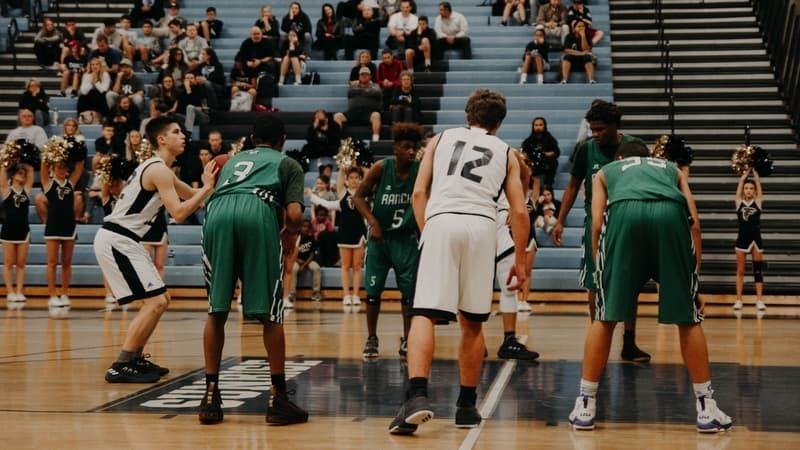Top Colleges Which Superscore the SAT & ACT — With Tips for Your Own Score Reporting Strategy
Read now/f/64062/1200x676/207c5254d4/benefits-of-ivy-league-header.jpg)
Our Services
About Us
ResourcesNew
/f/64062/205x153/572fb7c141/us-admissions.png)
It is the dream of many ambitious high school students to study at an Ivy League. Ivy League universities are known for their beautiful campuses, world-class faculty, diverse communities, plentiful job opportunities for graduates.
Princeton and Harvard are among the top Ivy League schools in the QS World University Rankings. Both schools offer distinctive academic and extracurricular programs. For most students, one stands out as the ideal fit. What makes each university unique, and how do you decide which Ivy League university is right for you? What is Harvard known for, and is Princeton better than Harvard?
Read on to learn about the difference between Harvard and Princeton!
Harvard University is one of the most highly ranked and globally respected academic institutions in the world. The private, medium-sized liberal arts university offers 4-year undergraduate programs, made up of the undergraduate college and 11 other postgraduate institutions, including the highly ranked Business School, Law School, Medical School, and John F. Kennedy School of Government. Founded in 1636, it was named for the college’s first benefactor, the young minister John Harvard, who, upon his death in 1638, left his library and half his estate to the institution.
Did you know: There are more than 400,000 Harvard alumni around the world!
Princeton University is a private, medium-sized, 4-year university that offers bachelor's, master's, and doctoral degrees, and the great majority of its undergraduate population live on its 600-acre suburban campus. Founded in 1746, Princeton is the fourth-oldest college in the US. Originally located in Elizabeth, then Newark, the college moved to Princeton in 1756, where it was housed in its famous Nassau Hall.
Did you know: At Princeton, every class has a reunion every year — and 26,000 alumni, family, and friends attend reunions each year!
| Harvard | Princeton | |
|---|---|---|
| Location | Cambridge, Massachusetts | Princeton, New Jersey |
| QS World University Ranking 2022 | 5 | 20 |
| Class of 2025 Acceptance rate | 3.43% | 3.98% |
| Average GPA | 3.7-4.0 | 3.7-4.0 |
| Average SAT/ACT scores | SAT: 1460-1580 ACT: 32-35 | SAT: 1460-1580 ACT: 32-35 |
| Tuition | $51,904 USD | $59,950 USD |
| Median starting salary for graduates | $69,000 USD | $69,000 USD |
Both Princeton and Harvard are located in New England, in the Northeast region of the United States. Getting to experience the fall foliage of New England for the first time is a memorable experience for many international students. But which university has a better location? Is Princeton better than Harvard? It all depends on your personal preference. Check out the differences between Harvard and Princeton below!
| Harvard | Princeton | |
|---|---|---|
| Setting | Urban | Suburban |
| City | Cambridge, Massachusetts — across the Charles River from Boston. The campus is a few steps away from the T, which allows students to explore the different nooks both Boston and Cambridge has to offer. As it is also home to many prestigious universities, the city naturally cultivates an intellectual yet vibrant scene. | Princeton is considered a quiet college town in New Jersey where students are fully integrated into the community. The relatively small town is perfect for students look for a campus in an idyllic city that is accessible by walking, biking — or through the Tiger Transit, the university transportation service. |
| Weather | As both Harvard and Princeton are located in New England, you can expect all four seasons, from summers averaging 25° Celsius to winters as cold as 0° Celsius. Harvard is further north and closer to the water, so in that respect, Princeton is more temperate. |
Here are a few of the most popular subjects offered at Harvard and Princeton.
These concentrations consider big questions about peoples and societies past and present, investigating phenomena large and small. Students studying Social Science conduct research into human cognition, behavior, values, health, and policy with the goal of gaining insight into the social challenges that exist across communities. With a mantra that calls for 'seeking solutions and serving humanity', Princeton's social science students can choose from a range of disciplines that shape and challenge society's view of the world.
Students in Harvard's Molecular and Cellular Biology program are interested in understanding the intersection of modern research in cellular biology with medicine and society. At Princeton, students can choose from a range of introductory courses in cell and molecular biology, chemistry, physics, and statistics, before focusing on core courses in genetics, biochemistry, and cell and developmental biology.
Harvard's computer science curriculum provides students with a great deal of flexibility. Students can combine their studies with other fields, including mathematics, physics, economics, and psychology.
Similarly, Princeton's Computer Science Department offers study in theory, networks and systems, graphics and vision, architecture, programming languages, security and policy, machines, and computational biology.
Harvard's history concentration emphasizes critical reading skills, evidence evaluation, and persuasive writing. It prepares students for careers in business and academia.
Princeton's history major is structured to both promote a broader knowledge of the subject and to provide students with the opportunity to focus their studies on the area of historical study that interests them most.
As part of the psychology concentration at Harvard, students learn about cognitive, social, and psychological processes such as attention, perception, memory, reasoning, and decision-making.
Mathematics is the science of order, and mathematicians seek to identify instances of order as well as to formulate and understand concepts leading to our perception of order in complicated situations.
Students at Princeton engineering explore the creative use of math and science to solve problems that affect humanity today.
Students who are passionate about public policy can major in a multidisciplinary liberal arts degree at Princeton's highly regarded Woodrow Wilson School of Public and International Affairs.

| Harvard | Princeton | |
|---|---|---|
| Median class size | 12 | 20 |
| Total student population | 23,731 | 8,213 |
| Undergraduate population | 5,222 (Fall 2020) | 5,267 (Fall 2020) |
| International student size | 12% | 12% |
| Student-Faculty ratio | 7:1 | 4:1 |

Elite universities in the United States typically charge high tuition rates, but the good news is that Ivy League schools offer generous financial aid packages (more on that later). Undergraduate tuition rates at Harvard and Princeton for 2021-2022 are $51,904 and $57,690, respectively. After considering additional costs such as fees, accommodation, travel, and personal expenses, the annual cost to attend either Harvard or Princeton is about $79,900 - $85,060.
| Harvard | Princeton | |
|---|---|---|
| Tuition | $51,904 | $57,690 |
| Room (Housing) and Board (Meal Plan) | $21,130 | $18,710 |
| Total estimated cost of attendance | $85,060 | $79,900 |
It’s no secret that the sticker price of attending a top university can be quite high. No matter your reasons for pursuing an education, the cost of tuition shouldn't stop you from achieving your goals.
The figures mentioned above may seem out of reach for many, but there are often financial aid opportunities at both Harvard and Princeton!
Typically, students who earn under a certain level of income are not required to pay tuition at Ivy League universities. In fact, over 20% of families at Harvard pay nothing, and over half of Harvard's undergraduate students receive need-based aid through the university's financial aid program.
Similarly, Princeton offers aid based on family financial need, and doesn't apply income cutoffs when determining whether to award aid. In fact, Princeton covers full-tuition, room, and board for students from families earning less than $65,000 per year!

There are more than 450 student organizations at Harvard, including publications, five orchestras, a community service program, 40 intercollegiate athletic teams, and a wide range of other activities - artistic, musical, political, and social.
Meanwhile, Princeton boasts hundreds of eclectic student activities at their university. Whether you're looking to perform slam poetry, make chocolate, tutor elementary school children, join a cappella group, write for a literary publication, or learn about beekeeping, Princeton supports over 500 student organizations created and run by students.
And when it comes to international opportunities for students, both Princeton and Harvard offer study abroad programs in collaboration with institutions around the world.
Whatever your extracurricular interests are, there will be a club that suits you. You can also create your own student organization if one doesn't exist at Princeton or Harvard! Both universities offer support and encouragement to carve your own path.

Harvard and Princeton are both highly competitive academic institutions, and applicants must meet minimum GPA requirements. While grades and accolades are important at both of these top universities, both consider applicants holistically, beyond academics.
To stand out in the Princeton admissions process, you have to tell your story, show what’s special about you, and write in a way that reflects your own unique voice. As an applicant, you must demonstrate your achievements in and out of the classroom and show that you will bring this energy to the campus and seize both academic and non-academic opportunities. Princeton's goal when it comes to admissions is to create a unique learning community that brings together a diverse mix of highly motivated, intellectually gifted students from different backgrounds. Check out Princeton's application checklist to learn more about what they look for.
While admissions officers at Harvard consider every aspect of an applicant - from extracurricular activities to their personal interests and endeavors, as well as their plans beyond university studies. Through essay questions and supplemental information, admissions officers at Harvard want to know how you plan to make the most of your time at the university. Harvard has created an application guideline for prospective students on their website, so be sure to check it out.
**
If you want to learn how to boost your overall application to top universities and make sure your application stands out, download our free eBook on How to Crush Your US College Application!**
Quality education is guaranteed regardless of which Ivy League university you attend. When narrowing down your university options, remember to prioritize the academics — examine the course descriptions thoroughly or consider attending open days at each university to get a feel for them. You might also consider getting in touch with alumni from Harvard or Princeton. You may also want to consider one of the other Ivy League schools. To learn more about the other Ivys and what it takes to gain acceptance, check out our Ultimate Guide to Getting into Ivy League Schools. If you still have questions about which universities to apply to, please feel free to contact us! We can connect you with one of our academic advisors who can assist you with the admissions process.